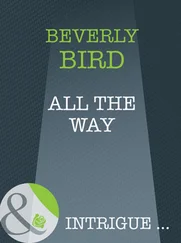Mr. Burns was waiting for them on the sidewalk outside his office, and he insisted on getting in the back, leaving Sonny up front with Mrs. Burns.
“Have a good day, folks?” he asked.
“Mmmm,” Sonny murmured.
“So-so,” Mrs. Burns said. “How about you?”
“Just fine.”
Any day that went along pretty much as it should, without any major upset or unexpected catastrophe, was just fine with Sonny’s father. Somewhere along the line, some years back, Mr. Burns seemed to have turned his emotions down to low, like the barest flame you could get on a gas burner before it went out altogether. That way you didn’t feel much, one way or the other; the decrease of joy was maybe compensated by the decrease of pain. It was a kind of bargain you made; a pact with neither God nor the Devil but some gray, purgatorial mediator who fixed your spirit with Novocain.
“Where we going?” Sonny asked.
His mother was driving far north on Meridian, and he couldn’t think of any restaurants out that way.
“We’re going someplace first, before we eat,” Mrs. Burns said.
“Where?”
Sonny’s father reached from the back and patted him on the shoulder, smiling mysteriously. “You’ll see,” he said.
“It’s a surprise,” Mrs. Burns said.
Sonny was afraid of that. He started chewing at his thumb.
“Sonny,” his mother said. “Your thumb.”
He took his thumb away and stuck a cigarette in his mouth.
The car turned off Meridian onto a dirt road, and they were in a flat, scrubby area with most of the trees cut down. A big white wooden sign said in flourishing scroll letters:
Rolling Hills Estates
For gracious modern living .
E. T. Garnisch, contractor
There was no hill, rolling or otherwise, as far as the eye could see. The goddamn place was flat as a pancake. There was a series of dirt roads laid out, like a grid, and wooden stakes that evidently indicated the subdivision of the lots. The pretend streets all had little street signs, wooden ones with hand-painted names. They turned on one that said “Wildbrook Lane.” There wasn’t any brook, but maybe there would be later. It would be easier to make a brook than a rolling hill.
Sonny wondered if his parents were about to go through the awful agony of housebuilding again, perhaps this time constructing a special wing on the place to serve as a bachelor suite, with personal den and private entrance. Then Sonny would be ungrateful as hell not to live in it after they had gone to all that trouble and expense. His mother was always mentioning Randolph Marbury, a nice, very shy fellow who worked at the Medallion Men’s Wear on 38th Street and helped Mrs. Burns pick out presents for Sonny. The thing that his mother found so marvelous about Randolph Marbury was that even though he was thirty-something years old he still lived with his parents and claimed to be crazy about the arrangement. Randolph was always telling Mrs. Burns stuff like “Alma, I know some people think I’m funny or something, but I love my parents and I don’t see why I shouldn’t live with the people I love.” Mrs. Burns would report Randolph’s sentiments and add her own comment, such as “Personally, I think it’s a wonderful thing for someone to love his parents and not be ashamed of it.” Sonny would make a noncommittal grunt, understanding all too clearly the moral of the story.
Mrs. Burns stopped the car and said, “Well, here we are.” They all got out and stood on the edge of an empty field, staring into the distance. There wasn’t any grass in the field, just dirt and weeds.
“You tell him,” Mrs. Burns said. “You tell him what it is.”
Mr. Burns cleared his throat. “It’s your lot, Sonny,” he said.
Sonny looked at him blankly. “My lot?”
“We had a little something saved up,” Mr. Burns said, “and we bought you this lot. Someday, when you’re ready to build, you’ll already have the lot.”
“We know you won’t be our little boy forever,” Mrs. Burns said, forcing a smile that looked like someone was choking her. “Someday, sooner or later, you’ll find the right girl, and you’ll settle down. We want to help all we can, but of course we don’t want to interfere. Do we, El?”
“Lord, no,” Mr. Burns said.
“We just want to help. We manage to save a little now and then, and we get more pleasure out of doing a little something for you than we would for ourselves. We only want your happiness, isn’t that right, El?”
“Lord, yes.”
Sonny wished desperately that they wanted something else; it would make it easier for him to breathe.
“That’s what we live for,” his mother said. “Your happiness.”
He couldn’t look at them and he wanted to start running over the grubby fields, into the woods, as far as possible. The silence was smothering, and Sonny felt like screaming, but instead he said, “Well, thanks. Thanks very much.”
Mr. Burns tentatively put a hand on his shoulder, which was the sort of thing a father should probably do at such a time. “Well, it’s your lot,” he said.
Sonny looked out on the flat, dusty stretch of land and said to himself, This is my lot. My lot in life .
Far off, beyond a scruffy stretch of woodland, the sun collided with the flat horizon and began to bleed.
There was going to be a party of some art-student friends of Marty on Saturday night, and Gunner fixed it so Sonny could come, too. Sonny was really excited about it, figuring something might happen that would open up new possibilities for him, serve as an entry into real life. The problem was Gunner said he could either come alone or bring a girl, and Sonny couldn’t decide whether or not he should take Buddie Porter. Taking her might be best because it would show the other girls there that he could get a girl if he wanted, that he wasn’t some poor shlunk who couldn’t get a date for Saturday night. On the other hand, there might be some fabulous girl at the party who he’d see across a crowded room and know was for him, and they’d madly embrace and live happily ever after. In that case Buddie would just be in the way, and he’d wish he hadn’t taken her.
The more Sonny thought about the idea of a girl art student, the more aroused he got. He pictured her as having long, flowing hair and a very thin, bony body fitted out in black leotards. This girl would probably believe in free love and scoff at all convention. She might have studied in Paris and learned a lot of things there—not just things about art. The more he thought about the imaginary girl, the less he wanted to be saddled with Buddie, and even though he’d made a date with her for Saturday night, he called and explained he had to go to a party but wasn’t allowed to take anyone. He said the party was being held in a very small house and there just wouldn’t be room for one more person. Buddie said that was all right, she understood. She always understood. It annoyed the hell out of Sonny.
It was hard to figure what to wear to the party, especially since Sonny didn’t know the people, but he knew they would be artistic and therefore different. He wanted, as always, to fit in and be approved of by everyone, but it was extra hard to do that if you were trying to fit in with people who didn’t want to fit in themselves. If he knew they would all wear gunnysacks, he would gladly have gone out and got him a gunnysack. But he didn’t know at all, and that was the worst thing. Finally he settled on his summer seersucker suit, which was pretty plain and neutral, but he wore with it his old white bucks, for a casual touch, and an orange, satiny sport shirt for dash and color. The shirt wasn’t really like him, which is why he’d bought it, hoping to add a little flavor to himself. The satiny material had some sort of electric quality about it and kept sticking to his skin in different places. The arms were way too long, and he had to keep nipping at the sleeves to keep the cuffs from bagging down over his wrists almost to his knuckles. It was especially hard to keep nipping up the sleeves when you had a coat on. You had to reach your hand in under the coat and tug up the shirt from around the shoulder. Keeping the sleeves up that way under a coat made it look like Sonny had some kind of terrible itch that he couldn’t lay off of. Still, it was the only shirt he had that was kind of flashy, and he settled on wearing it.
Читать дальше












